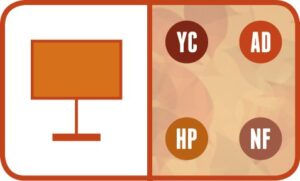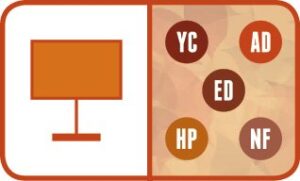7:30-8:30 amRegistration and ConnectionThe registration desk will open at 8:00 am. Pick up your name badge and conference materials, then enjoy connecting with other attendees before getting settled in the ballroom. | |
8:30 am – 9:45 amOpening Address Press Pause and Play: is this the answer for us all?Dr. Gordon NeufeldEveryone knows that children and play go together, but not necessarily know why and how. But what does play have to do with pregnancy? With marriage? With adulthood? With mortality? The short answer is more than what most people would ever have imagined. A longer answer has to do with play being discovered as sharing the attributes of rest. And REST is the answer to most everything that ails us, including stress, wounds, alarm, frustration, oppositionality, and even immaturity. It turns out that the play mode figures into growing, healing, attaching, resilience, and much more. Playfulness is even a primary indicator of emotional health and well-being. Dr. Neufeld will unfold the role of play in life and death – and most everything in between. | |
10:15 am – 11:25 amSessions A | |
A1 – Play and Learning
Dr. Gordon NeufeldAs we all know, learning can be hard work. And remembering what we have learned can be even harder. School – a place of learning – has become associated with work: schoolwork, homework, workbooks, achievement, effort, and learning outcomes. What has been eclipsed in all of this is the pivotal role of play in learning. For starters, play builds the brains that can do the work of learning. Our brains are programmed to realize their potential in the play mode. And it is only in the play mode that curiousity and creativity are experienced. Dr. Neufeld will unfold the role of play in learning – not only in childhood, but throughout the lifespan. - Prerequisite: None required.
|  |
A2 – Making Sense of ResilienceHeather Ferguson
One of the most challenging and crucial questions of our time is why some bounce back from adversity, seemingly unscathed, while others fall apart and become emotionally distraught and dysfunctional. Resilience is a remarkable construct – an overarching metaphor that touches on the arenas of stress, neural plasticity, emotional health, recovery, healing, mental illness, adaptation, defendedness, and therapy. Fresh understandings are coming to the fore as we glean more working knowledge of the brain, as well as the nature of emotion. Especially significant is the role of play in healing and recovery. The implications for working with children are profound, never mind the implications for dealing with stress in our own lives and in the lives of our loved ones. It turns out that emotional readiness for adversity is just as important as physical readiness for a natural disaster. Heather will focus on ways to restore the ability to bounce back from whatever may befall. - Prerequisite: None required.
|  |
A3 – Making Sense of Sensitivity in Children
Patti DrobotWhat is sensitivity and how does it manifest in certain children? Understanding and recognizing sensitivity is key when parenting or working with a sensitive child. If misunderstood, these children are at risk for behavioural problems and failure to mature. Through years of study and personal experience, Patti will help make sense of the sensitive child. She will discuss the challenges that often come with these children and discuss what the adult’s role is in helping sensitive children mature and reach their full potential. In this session, she will cover: signs of sensitivity and why sensitive children can be challenging to raise; reasons for behavioral issues that can arise; and key recommendations for parents and educators of sensitive children, including discipline. - Prerequisite: None required.
|  |
A4 – You’re Not the Boss of Me: Understanding Defiance and Cultivating Cooperation
Colleen Drobot
A common dynamic that is often frustrating to parents and potentially erodes the parent-child relationship is when a child balks and defies us. It can be as subtle as ignoring our requests or as blatant as telling us “You’re not the boss of me!” When we ask them to clean up, get ready for school, go to bed, come to the table, be kind to their sibling, etc., we may be met with a “No!” or they may in fact do the opposite. Dr. Neufeld describes this oppositional behaviour as counterwill. Although the reaction is quite normal and even healthy in certain circumstances, its manifestations and impact can be highly disruptive, making life difficult for parents. We will discuss the meaning of this deep-rooted instinct and the dynamics that control its existence and expression. Colleen will provide strategies to help adults reduce the effects of oppositional behaviour and gain cooperation with children. She will also discuss the role of play in this dynamic, including its amazing power to defuse and circumvent this instinctive reaction. - Prerequisite: None required.
|  |
A5 – Special Challenges in Working with Adolescents from an Attachment-Based Perspective
Darlene Denis-Friske
In Dr. Neufeld’s Advanced Intensive ‘Making Sense of Therapy’ he notes that adolescence is a “… critical time for identity issues, eating issues, and attachment issues, as well as a vulnerable time for the crystallization of a number of syndromes.” He considers complex questions involved in working with adolescents from an attachment-based perspective – the exploration of which will be the focus of this workshop. - Prerequisite: Intensive II.
|  |
A6 – Play and the BrainEva de GosztonyiWhat effect does play have on the brain? How does it all work? This session will look more deeply into the neuroscience of play to better understand its importance in the development of the whole child. Perhaps then we will relax and let our children and ourselves experience play – not as a luxury, but as an essential part of our human experience. - Prerequisite: None required.
|  |
A7 – Playful Outlets for Difficult Emotions
Jule Epp
As critical as emotions are for our development, they can also be “messy!” They can scatter our attention, cause us to be restless or irritable, and, when they get really “loud,” can lead to outbursts of intense aggression or debilitating anxiety. This kind of “mess” can disrupt our daily lives, threaten the relationships we are so dependent upon, and can ultimately lead, ironically, to a stunting of our development. So how do we deal with this fundamental human dilemma? Nature’s answer is clear: in play. Play provides us with a way to invite those “messy” emotions that we nevertheless so need and gives them a stage for “safe” expression. In this presentation, we will explore creative ways we can support this vital function of play in our children. Be it through music or pretend play, sports or humour, when we understand what “messy” emotion is “moving” our child, and when we are able to find it in ourselves to invite its expression, we will also be able to help our child find the “right” kind of “playground” to let even the “messiest” of emotions out. - Prerequisite: None required.
|  |
A8 – Keeping Play Alive in Adolescence
Robin Brooks-Sherriff, Jodi Bergman
Often we think of play being only for children. Yet when we understand the vital role of true play in emotional health and development, it becomes clear that our adolescents need play more than ever at this transitional and often turbulent time in their lives. With all that is going on internally, emotional playgrounds become increasingly important. Jodi and Robin will explore what play looks like as our children get older, as well as some creative ideas for how to keep play alive through the adolescent years. - Prerequisite: None required.
|  |
11:25-12:45 pmLunch (Independently or Optional Add-On)For an additional charge of $22, you may pre-order a soup and wrap lunch with your conference registration. This savory, yet light, lunch features Chef’s selection of soup, fresh garden greens with balsamic dressing or raspberry vinaigrette, your choice of wrap, and assorted dessert bars. If you have specific dietary considerations, you may want to bring your own lunch. There are also a handful of restaurants near the hotel, only a short drive away. Vancouver Kidsbooks will be on site with a conference bookstore, which you’re welcome to peruse during this time, too. Stop by the Neufeld Institute Conference Store and Continuing Education Table to see what courses we offer. | |
1:00-2:10 pmSessions B | |
B1 – Marriage and Play
Dr. Gordon NeufeldWhat does play have to do with marriage? Dr. Neufeld will elaborate on the ways – from engaging each other, to holding onto each other, to bridging troubled waters. To lose our playfulness with each other can be devastating for a marriage. On the other hand, there is a growing body of evidence that would suggest that couples who play together are more likely to stay together. Come find out why. - Prerequisite: Intensive I.
|  |
B2 – Making Sense of Emotional Defense
Dr. Deborah MacNamaraNeuroscience has paved the way to support what Freud once postured – we do have an emotional unconsciousness that operates outside of direct awareness. This is not a mistake, but part of the brain’s sophisticated capacity to defend and inhibit emotional awareness to serve survival needs. How does the brain inhibit vulnerable emotion? How can we create the conditions for the defenses to come down? How can we become conscious of defenses operating when they are meant to blind us in the first place? Developmental science provides answers to these puzzling emotional questions. - Prerequisite: None required
|  |
B3 – Making Sense of Anxiety in ChildrenPatti DrobotThere is currently an epidemic of anxiety affecting children of all ages. Anxiety can take many forms – including panic, phobias, sleep issues, physical illnesses, as well as a host of perplexing behaviours such as seeking attention and avoidance. Today’s world can create many challenges for children with school pressures, peer interactions, family dynamics, negative self-image, perfectionism, and many other stressors that impede a child’s ability to play, learn, and grow. Through stories, examples, and theory, Patti will suggest ways in which parents can understand anxiety and help support their children to find psychological and emotional rest in their world. She will also unfold the surprising role of play in addressing anxiety problems. This workshop is appropriate for parents and professionals working with all ages of children. - Prerequisite: None required.
|  |
B4 – Play and the Alpha-Dependent Dance Genevieve Schreier
In exploring the essence of attachment, Dr. Neufeld has revealed a fascinating, but little-talked-about dynamic that impacts every relationship – most significantly the parent-child and teacher-student relationship. With a growing number of children taking the alpha lead, the child-adult dance is becoming much more difficult than it used to be. True play has revealed itself as a surprising answer to adults hoping to dance their way back into the lead with the children in their care. Play provides a natural home for children to explore budding alpha instincts, without the pressures of being in charge in the ‘real world.’ In this presentation, Genevieve will explore the unique contribution play offers to alpha challenges. - Prerequisite: None required.
|  |
B5 – Softening the Heart of the Adolescent
Darlene Denis-FriskeAn adolescent is neither child nor adult – and therein lies much of the difficulty as we seek to anchor them through transition, turbulence, confusion, and frustration. We are their best bet, yet their instincts are to resist us. As parents, how do we face such resistance in a way that seeks to support them and keep their heart soft? - Prerequisite: None required.
|  |
B6 – Preserving Play in a Digital World
Tamara Strijack
We live in an age of technology, with information and entertainment at our fingertips. While this reality may have its conveniences, it can also preempt the time and space needed for play in our children’s lives. Research is now confirming that play is actually a vital part of emotional well-being and healthy development. What kind of play do children and adolescents need in their lives and how do we preserve true play in a world ready with quick fixes? - Prerequisite: None required.
|  |
B7 – Play and the Hypersensitive Child
Jule Epp
In this seminar, we will begin by taking a look at Dr. Neufeld’s breakthrough explanatory theory of autism: one that is based on neurological “hypersensitivity” in the context of an attachment-based understanding of child development. When we understand the escalating dynamics involved in the phenomenon of hypersensitivity, we can then also see why we need to turn to one of nature’s most powerful, therapeutic “tools” for help: play. Although an “inability to play” is often a trademark of autism, our understanding of hypersensitivity and its consequences will help us to nevertheless open the door to play for all of our children and adolescents. By compensating for the specific neurological and relational difficulties that children diagnosed with autism face, we can ease them into play, thereby making it possible for them to get access to the developmental “greenhouse” that play offers. - Prerequisite: None required.
|  |
B8 – Play and Emotion with the Transplanted Child
Geneviѐve BrabantAs Dr. Neufeld states, “Every child needs some help constructing emotional outhouses to relieve themselves of emotions that could alienate the ones they need.” This is particularly true of children in the context of foster care and adoption, where emotions can get stuck and facing separation is a common experience. In this presentation, participants will explore the power of play in helping “transplanted” children express emotions without repercussion, as well as helping them adapt to their life circumstances through play: not work, not for real, expressive, safe, engaging, and freeing. She will also discuss how to use play to help transplanted children attach to the adults now responsible for them. - Prerequisite: None required.
|  |
B9 – Incorporating the Neufeld Approach into Therapeutic Practice
Terry Warburton, Marla Kolomaya
Two experienced helping professionals share their own journeys of implementing the Neufeld approach into their counselling and therapy work. The topics they will touch upon include: strengthening children’s attachments to their parents, providing safe expression for emotion, healing attachment wounds, and the role of play in the therapeutic process. Terry and Marla will share experiences from working with children, families, and adults. - Prerequisite: None required.
|  |
2:10-2:35 pmAfternoon Break (15 minutes)Refill your water bottles, connect with other attendees, and make your way to your next session. Vancouver Kidsbooks will be on site with a conference bookstore to peruse, too. | |
2:35-3:45 pmSessions C | |
C1 – Making Sense of AggressionDenise Findlay
Aggression is one of the oldest and most challenging of human problems. What grabs our attention are the more violent acts of aggression but what is truly alarming is the groundswell of attacking energy within and between our kids that erupts in their interaction, their music, their language, their play, their games, and their fantasies. It is the rare parent or teacher who does not encounter aggression in one form or another – be it tantrums, tempers, fits, abrasiveness, abusive language, rude gestures, hostility, racism, taunts, put-downs, bullying, fighting, shaming, belittling, name-calling, or the more serious self-attacking forms including self-deprecation and suicidal thoughts and impulses. The most violent period of development is actually 2-4 years of age, but many fail to grow out of this problem. Aggressive children are unable to benefit from traditional methods of behaviour management. The key to making sense of aggression is to get past the violating behaviour to the emotional experience of the child. Special attention will be given to the pivotal role of play in addressing the emotional roots of the problem. - Prerequisite: None required.
|  |
C2 – Why Do Young Kids Do That?
Deborah MacNamaraYoung kids are some of the most misunderstood people around. They routinely defy logic and can baffle adults who care for them. They can go from 0 to 60 in a matter of minutes and are well known for their impulsive and egocentric ways. The secret to raising them is to realize their behaviour isn’t personal, but developmental, and to work at creating the conditions so they can grow up. Deborah will cover the most challenging and humorous behaviours with the hope that it leaves you feeling more patient and compassionate for these little people in your life. - Prerequisite: None required.
|  |
C3 – Bringing the Neufeld Approach into Schools
David McFall, Marla Kolomaya
More and more educators and their administrators are seeking to incorporate the Neufeld Approach into their districts, schools, and classrooms. Some have found their own unique ways to do this and we at the Neufeld Institute are attempting to glean from their experiences and ultimately develop some plans of our own to offer when asked. David is an Ottawa area elementary school principal and authorized Neufeld Course Facilitator. Wanda is a retired associate school superintendent from Alberta and now a faculty intern with the Neufeld Institute. Both come with a wealth of experience in addressing this challenge. They will each share their own thoughts and experiences on this topic and then will answer questions to help educators implement the Neufeld approach into their own schools and classrooms. This workshop is appropriate for administrators, teachers and staff members working with students pre-K to grade 12. - Prerequisite: None required.
|  |
C4 – Softening Defenses: Helping Children Face Vulnerability and Gain Resilience Colleen Drobot
Dr. Neufeld and faculty often speak of the need for a child’s heart to remain soft, for emotions to be felt and expressed, for tears of futility to be shed for a child to develop and mature. For anyone raising a child who is very sensitive or is stuck, softening the defenses the brain has erected for protection, can be a daunting task that sometimes seems almost impossible. This workshop will focus on ways we can soften a child’s heart so that the tears can be restored, lowering frustration and anxiety and cultivating resilience. She will also discuss the role of natural emotional play in protecting the heart and restoring emotional health. As a family therapist and mother of sensitive children, Colleen will share Dr. Neufeld’s wisdom and her personal experiences of how to restore the ability for a child to feel, attend, grieve, and attach. - Prerequisite: None required.
|  |
C5 – Creating a Culture of Play in Families
Jodi Bergman
Creating a culture of play in families is one of the most effective tools for keeping relationships fresh and exciting. Playing together brings joy, vitality, and resilience to relationships. It can also heal resentments, disagreements, and hurts. Through regular play, we can increase our levels of trust and safety with one another. Jodi will explore how to add play in our daily interactions, as we use this important tool to improve the quality of our connections with family members. - Prerequisite: None required.
|  |
C6 – Playful Facilitating
Tamara Strijack
In this workshop for Neufeld Institute facilitators, Tamara will explore ways to inject play and playfulness into the facilitation process. - Prerequisite: Neufeld Facilitator Program Graduates or Trainees.
|  |
C7 – Facilitating Expression Through Play
Hannah Beach
Play provides us a safe space to access our feelings and in doing so, it serves a significant role in the unfolding of human potential. When we hear the word ‘play,’ many of us think of young children and toys. Growing numbers of us have replaced play with entertainment. We are now seeing the emotional side effects of the loss of play in the lives of our children and adolescents. This presentation will explore the broader aspects of play and how it provides for natural therapy in our lives. We will examine how play can make it easier to access our feelings as well as move our emotion. We will address the role of play in our homes and classrooms and discuss strategies for how to find play when playfulness has been lost. Join Hannah as she shares insights into the extraordinary power of play and how it offers essential emotional outlets and builds resilience. - Prerequisite: None required.
|  |
C8 – Playful Discipline
Geneviѐve Brabant
Play serves the most important functions when it comes to managing a child’s behaviour. It enables adults to impose their will without crushing the child’s will or provoking counterwill, as well as providing the conditions conducive to developing the child’s own will. Play also protects the vital working attachments of a child while allowing for safe expression of troubling impulses. It is through play that children (and adults alike) can feel tender emotions, which are essential for good behaviour. In this presentation, participants will come to know play as the way into discipline practices that foster right relationships and emotional health. Through examples, participants will also learn how to use play to manage behaviour and invite emotional expression without repercussion. - Prerequisite: None required.
|  |
C9 – Home Education: Rest, Play, Learn
Jennifer GehmanWe live in a technological age, rich with conveniences and learning options. One would think that this would give us the leading edge in learning. Yet with so much information at their fingertips, our children are losing their sense of wonder and their curiousity. As adults, we can get distracted by the newest gadgets and the latest curriculum, but could it be that true learning comes from a different place? Developmental science is bringing us back to our roots and giving us clues as to what is needed to thrive in a world of overwhelming details, social pressures, and fragmented culture. Could it be that the ingredients for true learning have been right in front of us all along? Evidence is on the rise that play, in the context of a nurturing relationship, is a child’s best bet for learning. Jennifer will look at the pivotal (and somewhat surprising) roles of relationship and play in the learning equation, including how we, as adults, can help create the conditions for our children to thrive. - Prerequisite: None required.
|  |
3:55-4:30 pmFinal AddressDr. Gordon Neufeld |  |




























